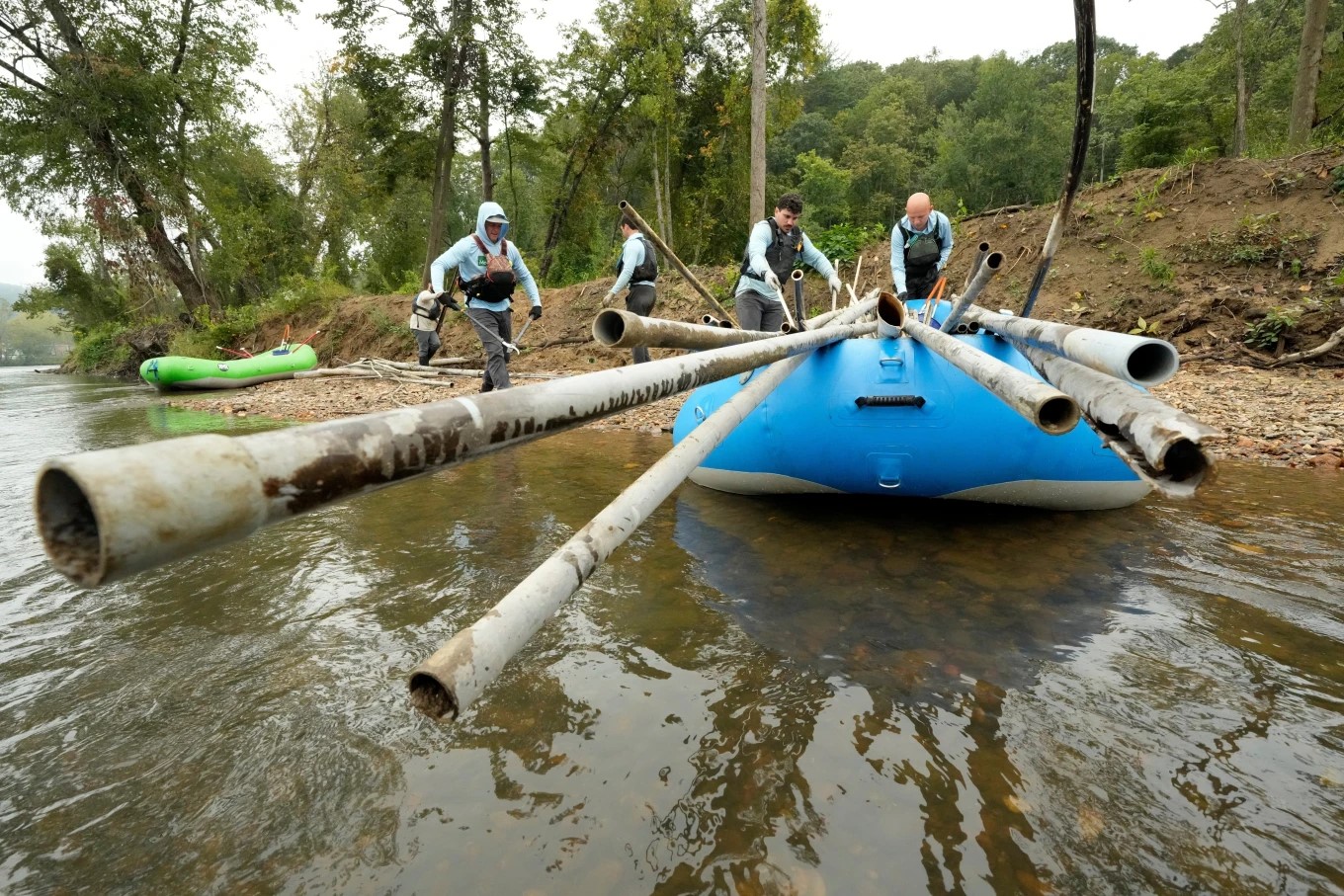Coal ash, the waste generated by coal-fired power plants, is already known to contain environmental contaminants such as selenium, cadmium and arsenic. Now, researchers at Duke say it may also be radioactive.
“Radiation is another set of contaminants that needs to be considered when we are trying to weigh the impact of coal ash in the environment,” says Avner Vengosh, a professor of geochemistry and water quality at Duke’s Nicholas School of the Environment.
Vengosh and a team of researchers found radium isotopes and lead-210 in coal ash at levels five times higher than in normal soil.
He says this could pose a human health hazard if coal ash is not properly handled. Dry ashes can be easily inhaled. Wet coal ash can leak into ponds and rivers as happened in 2014 when tens of thousands of tons spilled into the Dan River.
The Environmental Protection Agency is set to begin regulating coal ash next month, but those regulations don’t yet include monitoring of radioactive materials. Vengosh says that needs to change.
“I think that naturally occurring radioactive materials should be part of an overall monitoring procedure to make sure that those contaminants that occur in coal ash indeed remain in coal ash, and not transferred or mobilized into drinking water or waterways around coal ash ponds or landfills.”
Duke Energy is preparing to move 20 million tons of coal ash from across the state to sites in Chatham and Lee Counties. Vengosh says he’d like to see increased transparency and monitoring to make sure that process is completed safely.
“The common sense answer is first, that all information is transparent and available, and second, that there is independent monitoring of what’s going on,” says Vengosh. “So I think if those two conditions are met, that we do know what’s happened and we can actually report that, then I would feel more secure about this process.”
More broadly, he notes that the energy industry as a whole is largely exempt from the Clean Water Act, leaving scientists in the dark when it comes to monitoring water quality and pollution.
“It’s a much larger issue of lack of regulation and lack of monitoring, and I think that kind of legacy is resulting in us waking up one day and seeing we have an issue or a problem someplace.”
The study was published September 2 in the journal Environmental Science and Technology.
Related Stories
‹

China Exploits US-Funded Research on Nuclear Technology, a Congressional Report SaysChina is exploiting research partnerships funded by the U.S. Department of Energy to provide its military access to sensitive nuclear technology.

Duke Experts Share Advice On Avoiding, Treating Respiratory Viruses Over HolidaysDuke Health recently held a discussion on how people can avoid or cope with viral illnesses during the holiday season.

On North Carolina’s Rivers and Streams, the Cleanup of Helene’s Fury Seems Never-EndingIn the haste to rescue people and restore lives, some fear the recovery efforts compounded Hurricane Helene’s impact on the ecosystem.

Trump Makes Unfounded Claims About Tylenol and Repeats Discredited Link Between Vaccines and AutismPresident Donald Trump on Monday used the platform of the presidency to promote unproven and in some cases discredited ties between Tylenol, vaccines and autism.

Chapel Hill Hears Update on 828 MLK Boulevard's Potential Uses, Coal Ash Remediation OptionsThe Chapel Hill Town Council recently heard an update on the effort to develop the 828 Martin Luther King Jr. Boulevard site.

Europe Launches a Drive To Attract Scientists and Researchers After Trump Freezes US FundingThe European Union launched a drive to attract American scientists and researchers to Europe with offers of grants and new policy plans.

Chapel Hill Signs Finalized DEQ Agreement for 828 MLK Boulevard Coal Ash SiteThe Chapel Hill Town Council recently finalized a decade-long effort for finding a solution to the coal ash at 828 MLK Jr. Boulevard.

Analyzing The Significance of The UNC-Duke Rivalry in The White Lotus Season 3The White Lotus season three uses the UNC-Duke rivalry to make a deeper point about a family of main characters.

Nearly Everyone in the World Breathes Bad Air. This Is What You Can Do To Lower Your RiskWhile air quality varies dramatically from place to place and day to day, nearly the entire world — about 99% of the global population — is exposed to air at some point that doesn’t meet strict quality standards.

‘Duke Respect Durham:’ University Urged to Further Contribute, Partner With CityAs the second-largest employer in North Carolina with a $11.6 billion endowment and over $4 billion in properties, Duke University owns 11 percent of the land in Durham County, But for many Durham residents, Duke’s financial contributions to the city have failed to keep pace with the university’s massive profits.
›











